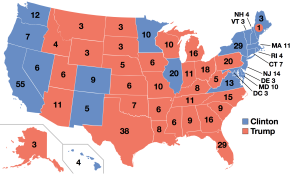President Trump’s Executive Order is Still Unlawful
 Yesterday, in a post on this Blog, I called President Trump’s Executive Order of January 27, 2017, “a rare trifecta of illegitimacy.” The rollout of the Executive Order has been confused, and its implementation uneven. Thus far, most Republican members of Congress have been silent on the legality of the Executive Order, even those Republicans who criticized Trump’s proposal to ban Muslim immigration during the presidential primaries. Notably, the Executive Order has received only tepid support from Senate Majority Leader Mitch McConnell.
Yesterday, in a post on this Blog, I called President Trump’s Executive Order of January 27, 2017, “a rare trifecta of illegitimacy.” The rollout of the Executive Order has been confused, and its implementation uneven. Thus far, most Republican members of Congress have been silent on the legality of the Executive Order, even those Republicans who criticized Trump’s proposal to ban Muslim immigration during the presidential primaries. Notably, the Executive Order has received only tepid support from Senate Majority Leader Mitch McConnell.
The Executive Order purports to “suspend entry” of all aliens into the United States who are nationals of specified countries. Media accounts describing the implementation of the Executive Order have focused thus far on the situation of individuals who are fleeing persecution being turned away at the United States border, and subsequently returned to their home country. For example, reporters have underscored the plight of Iraqis who provided assistance to U.S. forces during the Iraq War, and who have expressed fear over their safety if they remain in Iraq.
Defenders of the President’s power to issue the Executive Order point to a 1950s era statute passed by Congress, Section 212(f) of the Immigration and Nationality Act ( 8 U.S.C. 1182(f)). This provision is the key to the power Mr. Trump claims to suspend entry of certain categories of aliens and return them to their home countries. Section 212(f) says:
“Whenever the president finds that the entry of any aliens or of any class of aliens into the United States would be detrimental to the interests of the United States, he may by proclamation, and for such period as he shall deem necessary, suspend the entry of all aliens or any class of aliens as immigrants or nonimmigrants, or impose on the entry of aliens any restrictions he may deem to be appropriate.” (emphasis added)
By its own terms, the statute purports to grant the President the power to “suspend the entry” of aliens. However, the Trump Administration has gone further. The Trump Administration is turning aliens away from the border and returning them from whence they came.


